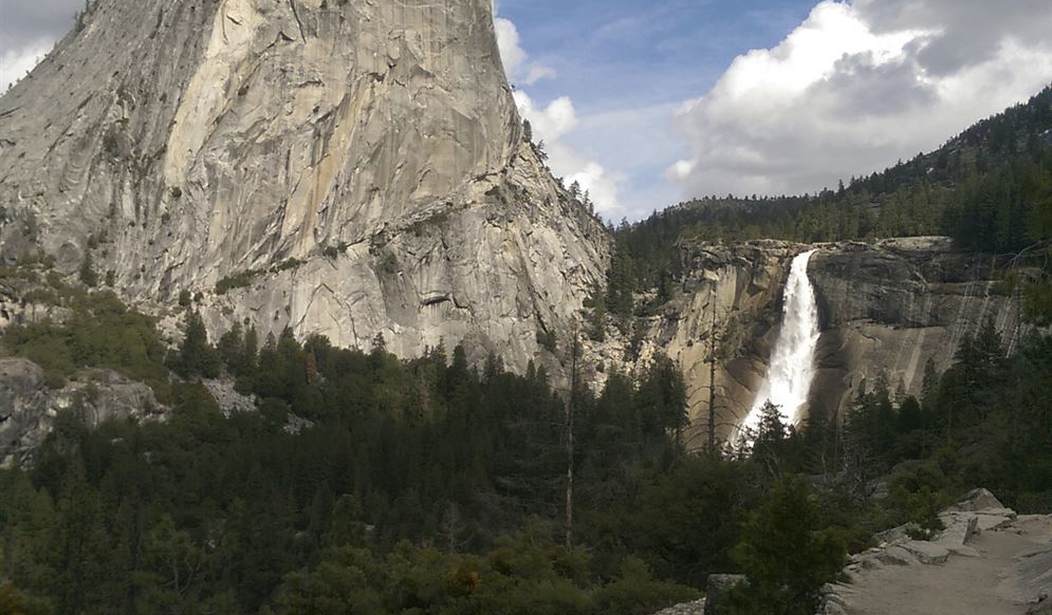In an era when it is all the rage for businesses and organizations to make bold declarations about recognizing their racial problems, it was hardly surprising when the Sierra Club came forward with its own mea culpa. Among the flood of companies posting their black squares on social media for Blackout Tuesday, the only ones who have managed to stand out are those not bending a knee to the mob. But the fact that the Sierra Club’s introspective outreach was lost in the deluge of other virtue-signaling outlets is illustrative of its superfluousness.
The environmental outfit recently came forward to announce it was addressing the problematic history of one of its founders, John Muir. Beyond helping to create the organization, Muir is credited with preserving Yosemite Valley, worked with presidents to protect natural sites, and aided in the creation of the National Park Service. In environmental circles, Muir holds an esteemed history on par with our Founding Fathers. Given that many of our Founders are coming under fire for social inequities, however, it is not shocking that Muir would also be scorned.
While its desire to be recognized for enlightened thinking is obvious, the Sierra Club — and any entity seeking to cleanse its soul, for that matter — needs to accept that things from the past are, in fact, the past. To acknowledge and demean its founder over views he held in his era does nothing to improve the lot of the organization today.
By today’s standards of “wokeness,” yes, Muir’s views are out of alignment. But Muir created the Sierra Club in the late 1800s, and as the club’s announcement notes, his stances were in line with those of many of the time. He had associations with members of white supremacist groups, but he also did great work on behalf of the environment. Why is that legacy now invalidated? The conflict is on display in this passage:
In these early years, the Sierra Club was basically a mountaineering club for middle- and upper-class white people who worked to preserve the wilderness they hiked through — wilderness that had begun to need protection only a few decades earlier, when white settlers violently displaced the Indigenous peoples who had lived on and taken care of the land for thousands of years.
Recommended
In noting Muir’s racist views, the Sierra Club article also notes that “his views evolved later in his life.’’ A piece on Muir addressing his issues in the LA Times lists numerous faults but adds that those are emblematic of a turn-of-the-century mindset. “He was a man of his times,’’ says the paper, lending a qualifier, ‘’who actively worked to displace California Indians by taking their lands.” Even this crime is somewhat couched.
In citing a previous op-ed, the paper mentions Muir’s hostility toward Native Americans. “Muir was depressingly conventional on matters of race, afflicted with a garden-variety Victorian white supremacism,” it stated in his profile. In discussing his work at the preservation of Yosemite National Park, it mentions the Native Americans beset by disease and displaced by force, but then mentions that tragedy took place ‘’17 years before he arrived in 1868.’’ In similar fashion, the Sierra Club article mentions his association with Henry Fairfield Osborn, who ran the New York Zoological Society and the American Museum of Natural History. The problem is, Osborn also helped to found the American Eugenics Society. The article notes he did so, ‘’in the years after Muir’s death.’’
While some of John Muir’s guilt is direct, just as much of it is tangential, and most seems to be rooted in the time in which he lived. While noting his social infractions appears needed today, so too should there be recognition that we are applying contemporary social standards to a man whose conservation efforts began 150 years ago. The question needs to be, do the positions held a century and a half ago — which have little influence today — somehow eclipse the work he did, which has lasted and even grown?
This is not to suggest that his views, toxic by today’s measures, should be ignored. But in the same thought, neither should his work be erased. Otherwise, logic would dictate that if he is regarded as so poisonous as to be stricken from the record, then the outfit this detestable man created should be completely disbanded. Someone so vile could only create a contemptible organization — so close up shop and cease activity.
This, we know, will not take place. The work being done and the goals already in place are too important, they’ll say. This should explain exactly why it is foolhardy of the organization to be swept up in today’s emotional flurry of self-flagellation. The Sierra Club itself references a completely different image of their founder, in fact. In a linked item from a few years ago, a lengthy study of the man shows deep admiration for Native Americans and how they operate as a people and treat the land and expresses contempt for how our military and government treated them.
Why this facet of John Muir can now be overlooked explains the shallowness of the entire movement we are currently experiencing. People are imperfect to begin with, so to ferret out those imperfections from the past to judge and impugn today is not only damaging, but wrong. Lost in the demands for perfection from history is that today’s judgments are being made by equally imperfect people.

























Join the conversation as a VIP Member